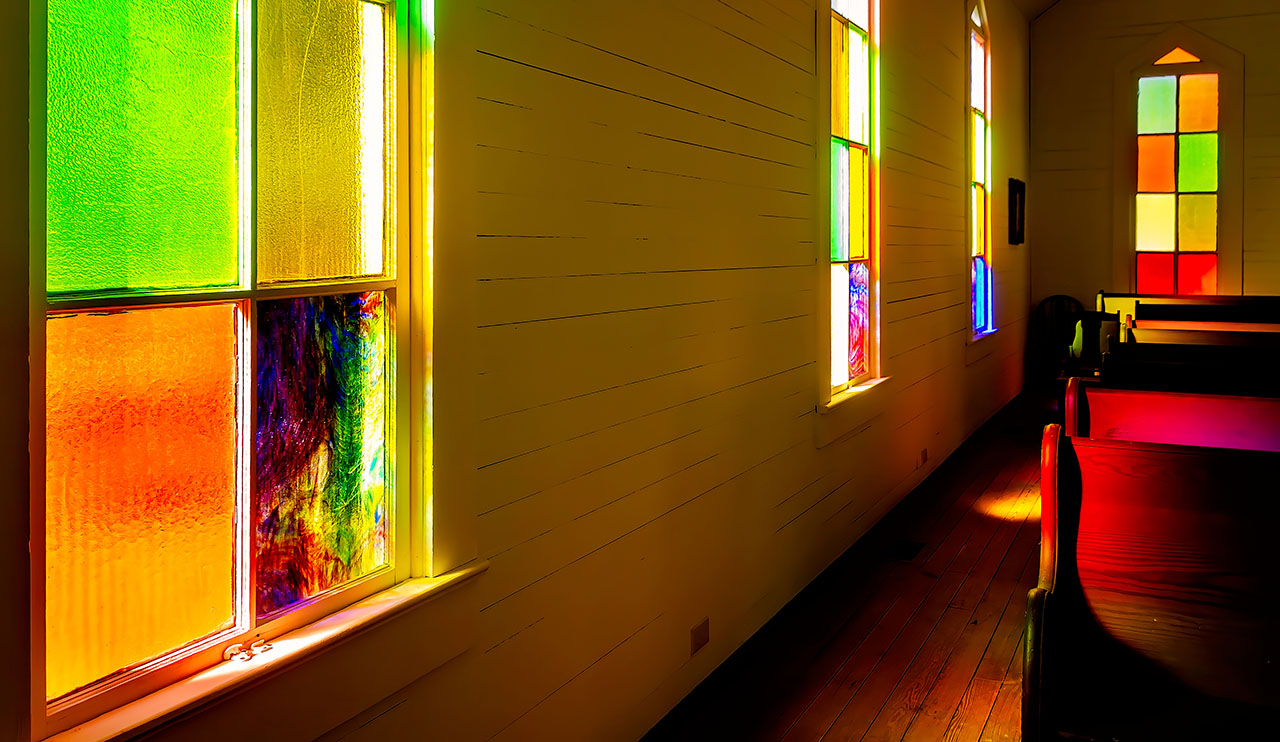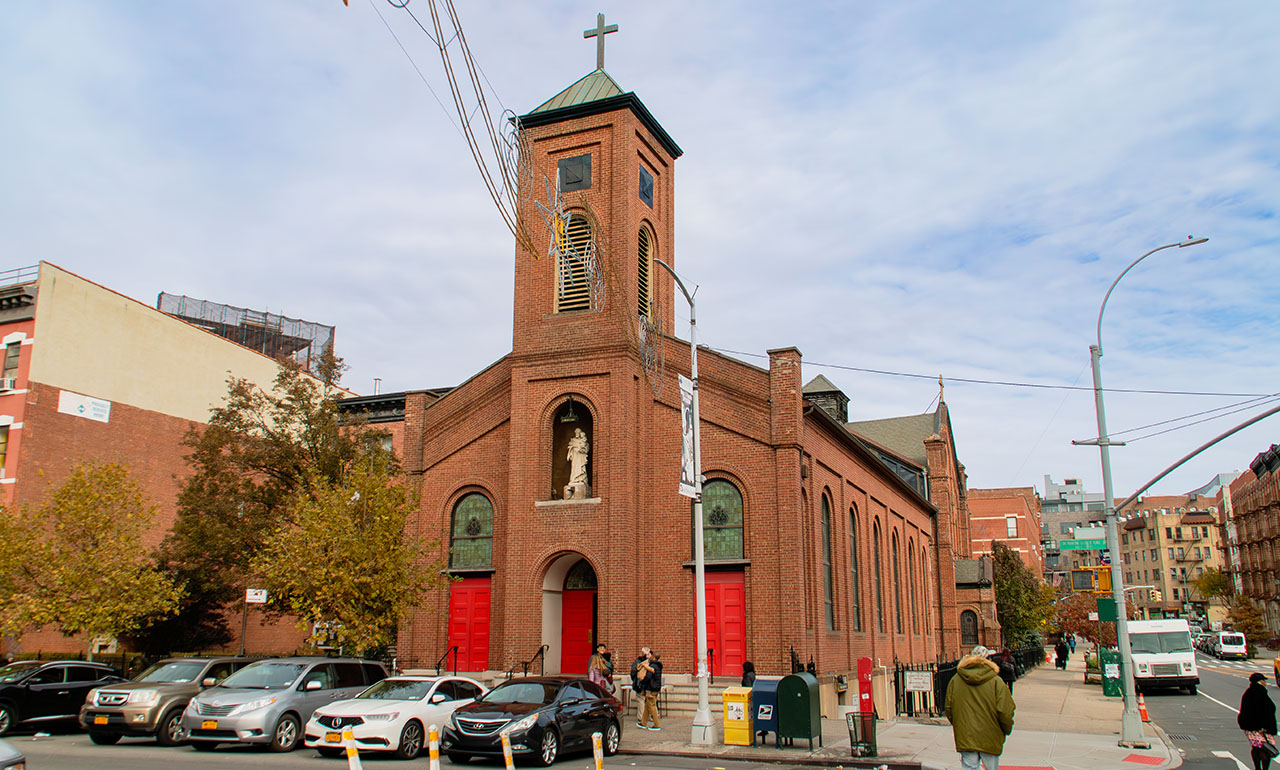Using Artificial Intelligence (AI) on ASTM standards and related intellectual property is prohibited. Violations will result in suspension of access.

Sep 02, 2025
Nearly half of New York City’s population lives in neighborhoods with high levels of pollution, heat, and other environmental challenges. Thousands of houses of worship (HOWs) are serving in these neighborhoods and are essential partners in the effort to strengthen local climate resiliency across the city.
Yet, many houses of worship are trying to maintain buildings that weren’t built to handle today’s weather. Some are over a century old. Some are in poor condition due to years of deferred maintenance. And many are now facing new stressors: extreme heat, stronger storms, flooding, smoke, and power outages.
These buildings are more than religious spaces. They’re where communities go for help, during emergencies and in everyday life. Congregations run food pantries, host recovery meetings, provide shelter, and offer space to other local nonprofits. So when buildings fail, the consequences ripple out.
New York Disaster Interfaith Services (NYDIS) is a 501(c)(3) faith-based federation of 60+ religious judicatories, human service providers, and charities that work together to advance disaster readiness, response, recovery, and resilience in New York City and in communities with direct city ties. Faith leaders told NYDIS that they needed help beyond traditional disaster preparedness. They needed help strengthening the faith buildings themselves. With funding from Con Edison and in partnership with Green City Force (GCF), a green jobs program, NYDIS launched the NYC House of Worship Climate Ready Audit Program to do just that.
The program offers walk-through building audits focused on resilience to climate impacts. It includes a small grant to help with immediate improvements. But what made the program viable was ASTM’s standard guide for property resilience assessments (E3429). “Existing energy-efficiency programs weren’t making the link with extreme weather protection,” said Dr. Lucy Cummings, Director of Faith Sector Resilience at NYDIS. “The ASTM standard was a game changer for us by clearly linking principles of energy efficiency to increased climate resilience. We hope this standard is used in other locally led climate adaptation programs.”
This approach aligns with the UN-led theme championed by the Global Center on Adaptation. As a long-time contributor to UN initiatives — with consultative status in ECOSOC and membership in ARISE — ASTM brings global standards expertise to support community-driven resilience solutions.
The audit is a guided walk-through. It looks at how the building handles heat, air quality, flooding, energy loss, and mechanical systems. The goal is to identify vulnerabilities, suggest improvements, and offer practical steps that are affordable and manageable.
HOWs apply to participate, providing utility bills, building history, and usage needs. Designed to also provide green job training, a certified building auditor accompanies GCF service corp members in a walk-through of the building. After each audit, the congregation receives a findings report. It includes observations, photos, and affordable next-step recommendations. A participating house of worship also receives a $1,500 grant to start acting on at least some of the recommendations.
E3429 helped make this possible by providing the technical structure behind the checklist and the logic for prioritizing risks.

These buildings are more than religious spaces.
One of the pilot audits took place at a church in Queens. The building was built in 1907 and open 24/7 to provide low-to-no cost community services like food pantries and overnight emergency sheltering. Flooding in the basement was becoming a constant problem. Utility bills were climbing. The weather’s extreme heat and cold made the building uncomfortable.
The audit helped identify key issues: drainage problems, air leakage around doors and windows, and foundation cracks. The recommended fixes were small in scope but meaningful. With the grant, the church is planning to seal problem areas, redirect downspouts, and add weather protection, like awnings, around entryways.
These steps will reduce water intrusion and make the building more comfortable. The audit also gave the trustees a report they could use in budget planning and future fundraising.
“Houses of worship are the primary social and basic human needs assistance networks within most communities,” said Peter Gudaitis, executive director and CEO, NYDIS. “Protecting these buildings is protecting the essence of the community. With this new program, NYDIS is performing walk-throughs on energy efficiency and climate risks to protect against climate vulnerabilities, improve efficiency, and lower utility costs.”
The standard guide for property resilience assessments didn’t just help NYDIS design a better inspection. It made it easier to explain the work to funders and city agencies. It also created an accessible, common language that auditors, trainers, and community partners could rely on.
By using a recognized standard, NYDIS was able to build a program that made sense across sectors. The guide helped connect the dots between energy efficiency, climate preparedness, public safety, and workforce development.
It also provided a way to show impact. The framework made it possible to track changes, measure progress, and support congregations in taking next steps— whether that’s a weatherization project, a ventilation upgrade, or applying for new funding.
The program has started with seven pilot sites and will expand to 75 diverse houses of worship across NYC over the next three years. NYDIS plans to keep using E3429 as the backbone of the audit process. They’re also exploring ways to expand the training for auditors and build new partnerships with city agencies and utilities.
Each faith building presents its own challenges. The audit program provides a tailored inspection framework that helps faith communities strengthen their buildings so they can keep serving the people who depend on them. For NYDIS, ASTM standards helped them build something grounded in the needs of the communities they serve. ●
LOCATION
New York City, New York
NUMBER OF EMPLOYEES
20
NYDIS EXECUTIVE DIRECTOR
Peter Gudaitis
DESCRIPTION
New York Disaster Interfaith Services (NYDIS) is a 501(c)(3) faith-based federation of 60+ religious judicatories, human service providers, and charities that work together to advance disaster readiness, response, recovery, and resilience in New York City and in communities with direct city ties. In partnership, NYDIS inspires, connects, and equips faith communities to serve neighbors in times of crisis and suffering— building pathways to resilience, long-term recovery, and social justice.
September / October 2025